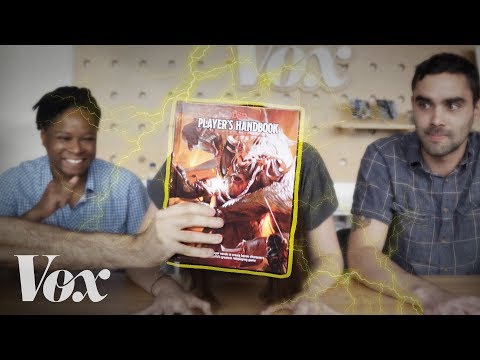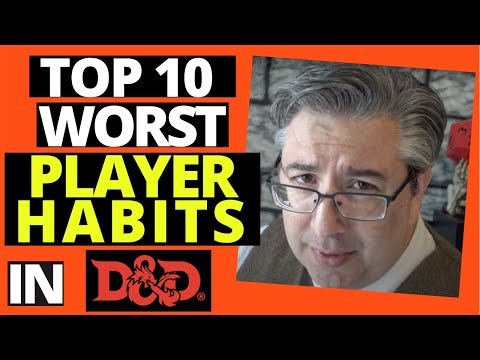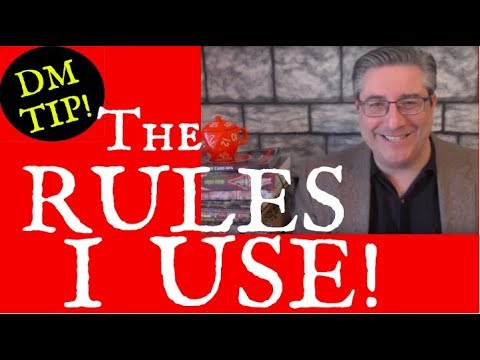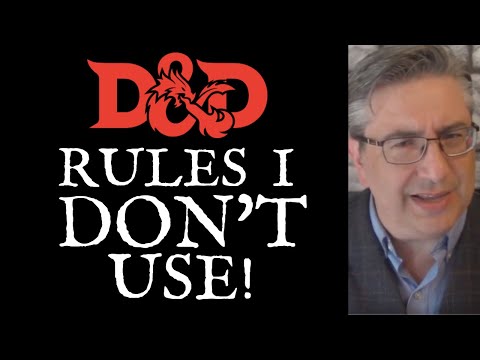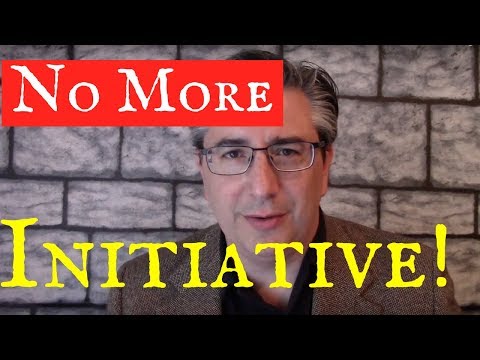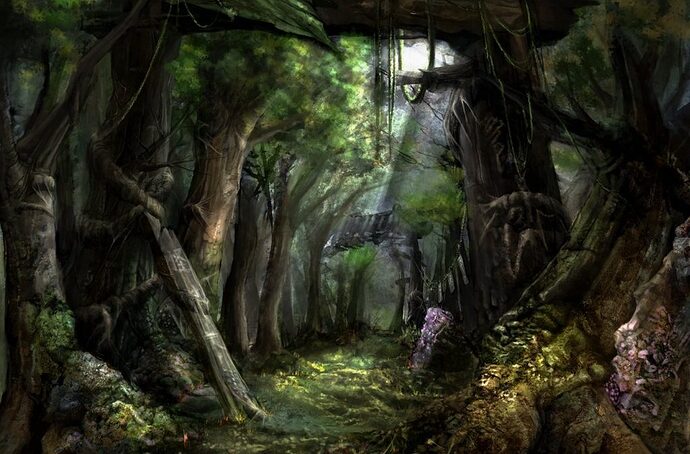I gotta warn you! The document below is a bit more than 5000 words! I actually send it to every person (but as a link to an online page with nice, inspiring DnD images/pictures and better formatting) who is interested in joining my group and give them a few weeks to read it. It is explicitly meant as a filter, I don’t want to disappoint anyone with them ending up not expecting and/or disliking my play-style or for me having to spend valuable game hours explaining or justifying things at the actual session.
Yes, it can sound persnickety, yes, some of you will completely not agree with, or even dislike some of my preferences! That is all fine. 
I still hope 1 or 2 of you get something out of it! Ideas or feedback, especially positive, are appreciated.
D&D & more
Please make sure to watch this short, fun video all the way through. It explains how the game works well. Just as important, it shows and explains why it is so enjoyable and different to any other game and, how it fosters and thrives on, collaboration and community:
-This is a role-playing game, always try to speak in your character’s voice and describe in a succinct but evocative way what you are doing! So: “Good trades-man, i’d love to have a look at your finest horses and tackle.” instead of “My character tries to buy a horse”. “I tense and suddenly jump forward and backhand slash at his abdomen with my broadsword trying to eviscerate the disgusting creature!” and not “I guess my character will hit him again,…” It really is more fun and immersive for everyone if you actually roleplay as much as possible.
We always start sessions at 19:00 sharp. Dates are always pinned in our Telegram group. Please come somewhat fed (dinner) and leave the character record sheet at mine. That way there is no chance you might forget the sheet, of course feel free to have another copy or take a pic of it at the end of the sesh.
Importantly, the first 3 sessions are a bit of a try-out, just to see if a new player meshes well with the group. There is no “wrong” way to play RPGs, but there is what you enjoy and what you do not… and that is not always the same or compatible among different people.
DM Pet Peeves & preferences:
Watch this video, it is really important! →
-Absolutely no Player vs Player or trying to steal etc. from, or wounding or killing other player characters/party members. Not a fan of Murderhobo (https://www.urbandictionary.com/define.php?term=murderhobo) style play either. There might be an extremely rare exception to all this stuff above when I might be ok with one of those things happening but only a for very good or fun reason.
-Party splits, almost never/as little and short as possible, our playing time is limited and I want everyone’s character to be able to do plenty instead of having to only listen and be passive for 5 to 30 mins while (only) 1 other player goes of and does their thing, alone.
-We play a lower level, very slow level progression, RPG heavy, combat less than 50% of the session, low magic game and world. I find it makes for more risk, reward, roleplaying, immersion, balance, realism/verisimilitude, world-building as well as being easier for me to prepare and arbitrate. The maximum level any character can reach is capped at 6th level which would take a very long time to achieve, on the order of years in real life.
-Please only use pencil on your character record sheet, instead of printing anything on your character sheet, I am designated has-a-printer-guy,… who doesn’t feel like re-printing out each sheet any time any stat changes. xd
-No phones, laptops nor tablets at the table. Kills the immersion and flow. Takes up ton of table space and risk of drop or spills. Just put it on silent in bag and check it during a pee break.
-Players being a bit too passive or too loud or overbearing, I like everyone to have about an equal say, amount of agency and spotlight, unless of course that goes totally against their character’s personality. But even then, a charismatic, leader or planner type character or player should not be taking over the session or party all the time, let everyone lead or come up with ideas, and even decide, often.
-Only the more iconic races and classes:
Allowed races : Humans, Elves, Half-Elves, Halflings, Dwarves
Allowed classes : Thief (=Rogue), Wizard (=Mage etc), Fighter, Cleric (=Priest)
No Dragonborn, Warforged, Tieflings, Drow, Warlock, Half-Orc etc etc.
-Too much stuff on the table,. chances of a drink spilling go way up. On the other hand, the table is usually full due to all the nice snacks and drinks everyone brings,… so can’t complain! 
-No creepy stuff or anything that might make anyone feel like shit, in or out of character. Since running my first D&D game at 13 years old I have always played RPGs with women and men. The /rpghorrorstories (online and IRL) I have heard of, involving women and also men made to feel uncomfortable at RPG sessions, are legion. Not at my table or house.
-Try to not to accidentally ring the doorbell of my neighbors late at night! xd In the hall way outside my apartment door, only hit the top button, the one that has the small orange light, like 2 meters from from my front door, that is the only one that switches on the hall light. All other buttons ring my neighbors’ doorbells…
-I always DM, always play RPGs, I really tried playing Player Characters as well as playing board games numerous times and it was just not my thing, but I encourage anyone to start/host their own (board) game nights or run their own RPG sessions at their places!  The more games being played the better!
The more games being played the better!
-Any die not (successfully) rolled into the dice tower will have to be re-rolled/will not count. If it bounces out of the dice tower or die does not end up lying flat/could be two different results, you have to re-roll it.
Setting & sticking to the date and showing up on time
“Just play one session without me” is very sub-optimal. Reasons: 4 players (and character classes) is truly ideal in terms of game mechanics, story-line, but more than that, logistics. I’ve tried 3 players many times, not so great. Any more than 4 or max. 5 players + 1 DM and sticking to the date, starting on time, running the game etc. is far, far harder to manage. In the past there have been last minute actual emergencies a few times: “I suddenly got really sick this morning”, “I got into a car accident”, of course those are 100% legit & understandable!
The thing is, when such a totally unpredictable emergency happens on top of another person already saying they won’t be there (due to a vacation planned in advance for instance) it means you are left with 2 or 3 players + 1 DM, that simply means the session is cancelled for everyone, last minute… which sucks for everyone who made time and was looking forward to it. Guest / one off sit-in players is good fun on very rare occasions, but that has it’s own issues/complications. I don’t want to rely on inviting such a player as a last minute stopgap so maaaaybe, if we are very lucky and they are available, the session is not cancelled…
If you find that your life(style), work, responsibilities and free time is, or becomes increasingly incompatible with making it (on time) almost every session of D&D, that is completely understandeable. Just please tell us asap and ideally play with us another 2 sessions before you stop, so we have time to find another player.
I always prefer to host at my place. With all my books, printer, props, music, notes and much more it is so much easier to do some prep on day of session at home and to play here. Also, my place is quiet and I know 100% sure we will not be disturbed by housemates nor anyone else. On rare, rare occasions I have run a game elsewhere or even in a park, but it really makes a lot of things harder.
As for on time, I really, really appreciate people coming down to my place to play, and I understand the vagaries of public transport, life etc.! Yet, we only get to actually play 4 hours every 2 weeks at best! More realistically with vacations, catching up, toilet & food breaks, slight and truly unavoidable tardiness, getting game set up and cleaning up afterwards, we are looking at about 3 to 3.5 hours actually playing and probably less than every two weeks. So when four people do not have to decide to either not play and wait for the late player (and player character!) nor to just start without them, that is of course far better. Nevertheless, I very, very much prefer you show up a little late than end up in an accident, so be careful out there, especially if cycling/driving.
Please don’t come early, just at 19:00, no matter how hard I try I always work best as a crammer in terms of prepping my session, at 18:55 I will absolutely still be jotting down few final notes and printing out images. XD
Seen from my front door, there is a convenience store 4 mins walk from my place. Map below. If you have to kill a bit of time, pick up a snack or have a smoke outside.
If you do have to cancel, please always message the D&D Telegram group (never only me in a pm, I will probably not get it/get it late/be too busy) ASAP! Messaging us to cancel a half an hour before session starts and especially after starting time, when you could easily have let us know sooner, is not ok and likely means you have to find a new group.
Rules
Character record sheet and starting items, please print out the sheet above and only fill in what you know with pencil, no auto-fill sheets etc. Name, age, appearance, class and race are particularly important to figure out and write down before you show up. You will likely only know about 30% of the sheet, anything you don’t know we will fill in together at start of first session. Every character starts out with 6cp (copper pieces) only, any one common/simple weapon of your choice (damage is the same for every weapon), 1 day’s worth of food/rations, a large coat or cloak that doubles as a blanket and with their character having an ethos of 0, except Clerics who have an ethos of +1 when they start. Additionally a Cleric will have a copper holy symbol of their god, the Wizard will have 30 sheets of parchment, some ink and a quill while the Thief has simple, home-made lock picks and the Fighter has a simple second/back-up weapon.
10 Copper Pieces = 1 Silver Piece. 10 Silver Pieces = 1 Gold Piece. (cp, sp, gp).
A cheap beer/ale is 2 to 6 cp, a single torch that burns about 2 hours is 1 cp. A good horse on the other hand is 75 gp. A small base or home in a popular city can easily be 2000 gp to buy. Leather armor (most basic armor) is 20 gp, many higher grade armors are in the 200 to 1000+ gp range . Anything else, just ask.
Backpacks, armor, mounts, rope, (additional) daggers, munition or weapons, torches, spell components, housing, food and any other gear or weapons needs to be found while adventuring, traded for or purchased once you can manage or afford to do so.
Forget literally anything found in the (5e) D&D rulebooks, we play a variant of D&D that takes rules from various (mostly early) editions of D&D as well as other role-playing games, it is rules and power level light, fast, challenging, more risky, easier to understand how to play and ultimately way more fun. Please take my word on that, I have played and ran almost every edition these last 30+ years.
My rules mean that from a game mechanic point of view it does not matter! what class or race you play, I strive to balance the 4 classes in power level and (dis)advantages as much as possible.
More important is what “Archetype” (=background/former vocation/reason to adventure) you play, see below. Pick a class and race based on what appeals most to you in terms of roleplay and focus on what kind of archetype your character is, don’t pick based on game mechanical aspects. Please make your character background/history text short and punchy, say 10 to 25 lines in a document like this one, no more. The shorter but more interesting it is/with more hooks, the more likely I can remember it and weave it into the story a bit.
Besides asking yourself what your character did before he or she became and adventurer, deciding why they became an adventurer is just as, or often even more, important. Together these two things should enable you to decide your archetype, personality and more. Below are just some possible reasons:
Why did my character become an adventurer?
-
Accused of a crime they did not commit.
-
Accused of a crime they DID commit.
-
Escaped slavery or indentured servitude.
-
Swore an oath.
-
Owes money or has a goal of amassing a specific fortune/level of wealth and influence
-
Farm devastated by locusts, drought or something else entirely.
-
Town destroyed by monsters, brigands or something else entirely.
-
Town devastated by plague or something else entirely.
-
Guilt or shame.
-
Fleeing a loveless marriage or a life of misery, repetition, scant prospects or boredom.
-
Seeking revenge/orphan (these are very overdone tropes and reasons, so best to find original angle)
-
Deserted the army or clergy.
Watch these two clips and you will know 80%+ of the actual rules we use:
The rules are a bit like the Pirate’s code, more guidelines than rules that always apply as written or apply period. I have a lot of house rules as well as rulings and decisions I make on the spot, with some regularity I ignore, or on rare occasions even contradict the written rules. This is a convention and tradition that has been around since the inaugural D&D groups run by the creators -Gygax and Arneson- in the 70s and something every DM does. My motivation is almost always to make the game more fun, fast, immersive, fair, balanced and to spend less time lawyering over rules or sifting through thick rule books during precious session time.
Other rules and clarifications
Check on the Telegram group what classes are already taken and if at all possible take a different class/one that is still missing. Once done, post your character (background) on the Telegram group (your history/Archetype and physical description, age, gender race, clothing, appearance, first impression people get. In that way we all know your character some and can also suggest small changes (if any are necessary), before we actually start playing.
A. Ability scores are assigned together at the start of your first session. The six ability scores are:
- Strength, measuring physical power
- Dexterity, measuring agility
- Constitution, measuring endurance
- Intelligence, measuring reasoning and memory
- Wisdom, measuring Perception and Insight
- Charisma, measuring force of Personality
If you are experienced in making characters: assign the scores yourself making sure the combined “net-bonus” for all 6 of your ability scores is +5 and you don’t assign any ability scores lower than a 9 (unless you have a great reason) nor have more than only one 18 score, one 16 and the rest lower. You can of course also have an 18 and two 15 scores (that would be a net bonus of +5, providing all your other scores were 12 or lower) etc. The idea is that you a have ton of flexibility in making a character, that all characters have comparable power levels and nobody absolutely sucks at anything (unles they want that) nor is almost super-human at more than 1 aspect.
For example: some people like playing an utterly dumb (7 or lower Intelligence) or socially awkward (7 or lower Charisma) character that is perhaps very Strong and that has great Constitution, this type of stuff can be super memorable if you can roll with the punches!  But, in practice it can also be hard to be super specialized. So, assign scores in whatever way that you think you will end up with a character you would enjoy playing.
But, in practice it can also be hard to be super specialized. So, assign scores in whatever way that you think you will end up with a character you would enjoy playing.
| Ability score | Bonus/Penalty |
|---|---|
| 3 | -3 |
| 4-5 | -2 |
| 6-8 | -1 |
| 9-12 | 0 |
| 13-15 | +1 |
| 16-17 | +2 |
| 18 | +3 |
B. Natural healing will be slow and hard
However, if we have no true healer (Cleric/Priest) in the party, I will simply make magical healing (items, potions, services) slightly more common and affordable (they can almost never be bought, hard to find and rare, always). All of this adds an element of hard choices and resource management, which can be fun.
C. Level progression will be slow (see above)
D. There is no (separate) initiative as such, this explains exactly how it works in our game:
E. If you are a Wizard or Cleric, you will be given a small list of initial spells when you first make your character. After that, each new spells must be acquired and earned, Wizards have to apprentice and/or adventure to find and learn new spells and they have to always be buying and replacing (often rare or expensive) spell components while Clerics have to adventure or do good deeds or services/serve their god and also tithe plenty in order to acquire new spells or even be able to cast already known spells. Also think about how you describe casting casting your spell, this is almost completely up to you, but again this is a Roleplaying game, we are collaboratively painting a picture, telling a story! If there are specific spells or effects that you would like to learn (because they fit in with your character concept for instance) just let me know, I can find some online or we can develop them together a bit!
F. Backstab, the special much higher damage attack Thieves have as a unique feature: I do not allow ‘Backstab’ (= Sneak attack) every (other) round. It has to be logical and tends to work once per adversary and perhaps twice per fight. Same applies for Thieves’ ‘hide in shadows’ ability, it has to be logical/realistic that hiding is doable in the circumstances or area (lighting conditions, lines of sight, items or features that would help you to hide, acuity of the senses of the opponent etc.)
G. We spend ca 50% of our play time on combat, often even quite a bit less. This is on purpose as we also like to spend time on collaborative roleplaying and story-telling, exploration, world-building, trading, making contacts, travelling and more. Combat tends to be risky, fast, furious and requires you to make decisions quickly and to stick to those decisions once you have made them, for good or bad.
I use The Rule of Cool. Sparingly, since I like a bit of gritty realism at the table, but I like a good laugh and fun, crazy, memorable moments a lot too!  The Rule of Cool essentially states that:
The Rule of Cool essentially states that:
“The Suspension Of Disbelief for a given element is directly proportional to its degree of coolness.” If a player thinks of a really smart, original, heroic, cool or interesting thing to do, even if it is very hard, I will very often let her roll for it anyway (and it will likely be a very high roll that is needed, often a natural 20) if it will make the game a lot more fun for everyone. Realism is less important during these rare moments. This explains it more clearly in 5 minutes:
The rule of cool works both ways, meaning that sometimes something decidedly un-heroic or even totally sucky may happen to your characters if: bad luck, hilarity, a critical miss or critical hit (a roll of 1 or 20 on the die) or some other occurrence causes this. Generally your opponents can do everything you can, use special abilities, sometimes have spells, get advantage or easy on a roll, can roll a critical etc. Sometimes running away or not fighting at all is the only way to survive.
Character death
Characters will die. Hopefully this does not happen every session and might even be rare. If there is no risk (of death or failure) there can be no meaningful reward or much tension at all. My rule is that if you hit 0 HP or below you roll a 1d4 +2 and add in your constitution bonus, if any. This total is the amount of combat rounds (each round is 6 seconds in-game) your friends have to cast some healing spell, administer a potion or bandage your wounds to stabilize or possibly revive you. The math works out to having 3 to 9 rounds. That is all the time you have before your character is permanently dead and you will have to make a new character that starts at level 1.
The only exception to this is if your friends have, or they can convince someone to cast a resurrection type spell, on your dead character. These spells are exceedingly hard/rare and them being cast will result in a huge debt being owed to the caster (for the service and also to replace the very expensive spell components that are consumed) or to the deity/cleric/priesthood/church that provides this biggest of boons. This could be a monetary debt of many 1000s of GP and/or having to do mandatory service of many kinds, for years. Even if the character is resurrected, they will have some strange feelings and odd effects for 3 to 12 months after.
In order to survive long you will absolutely have to totally avoid certain fights, retreat or completely flee at times, some foes and situations will be far beyond you and your friends. Or, you will need to use diplomacy, a trick or ruse or clever idea to solve your issue rather than combat. Generally you will all need to cooperate, stick together and use clever strategy, tactics and plans pretty much every single session. If you do (very) risky or ill-advised things, go off by yourself etc. definitely expect your character to have a very short life. You will usually know you are about to do such a thing if you carefully listen to your fellow players and/or GM.
The World
Here is the complete larger map overview of a large area (The Sword Coast) we often play in:
[image]
Forget any lore you might know of these places however, my world is homebrew and set in a specific year and has it’s own lore that I will of course share during the game. We quite often end up in or around Waterdeep, a very large city which is on The Sword Coast in the top third of the map above, to the left of Ardeep forest. Everything in the Waterdeep video below is canon/true, except the Spellplague and anything resulting from it, we are playing a very long time before that and it might not happen in my world at all. → https://youtu.be/fBiQ1Ft5MJ8?t=24
The Sword Coast area above, is part of a much larger world/continent called Faerûn
All these religions, gods and deities exist, if your character worships a god or follows a religion, pick one from this list:
Magic
Even simple magic is rather rare, higher level magic items, spells or services are very rare, coveted, and are almost never sold or only at a very high price. Most spells, especially any above Level 1 magical spells require costly components, that are usually consumed during the casting. The amount of spells any character can cast during a 24 hour period is very limited, regardless of spell components, see the spell table below.
Caster level is the level of the (Wizard or Cleric) character in question, the bolded numbers at the top are the spell level while the other numbers tell you how many spells of a specific level a character can cast. For example: Amy has been playing for many months, her Wizard (or Cleric, same spell table) character has reached (Caster/Character) level 3. That means, according to the table above, that in ideal circumstances, when she has rested and prepared all her spells for the coming day, she can cast any two 1st level spells (for example Burning hands and Feather Fall) and one 2nd level spell (for example Invisibility), providing she learned or acquired those spells at any one time in the past. There are a few more details to spell-casting which will be explained during the game, also of course Wizard or Cleric characters will be given a list of spells which explain how their spells work.
Poisons and oils etc
Simple lamp oil is readily available but burns quite slowly and with very little heat. Any kind of combustible liquids that burn hotter are very hard to refine as well as scarce and costly, the same applies to any effective poisons. Almost all poisons lose potency very quickly, particularly more potent poisons. Most poisons are proscribed in any civilized areas.
Experience point (XP), treasure and leveling up
Our progression from level 1 to level 2 might take 3 to 6 sessions. At higher levels beyond the 2nd this is even slower. For every 1 Gold Piece worth of treasure the party finds, each party member gets 1 XP. Always. 50% to 75%+ of all XP everyone receives is reliant on GP (or treasure worth GP) recovered. By recovered I mean it has been found as well as been transported to a safe area. It follows that, you must dungeon delve, travel and explore, else you will never become stronger, acquire new treasure, magic or skills.
The remaining % of XP is of course based on Roleplaying as well as overcoming monsters or enemies. Basically if anyone in the group engages in excellent Roleplaying, I am more likely to award everyone more XP. I always do group XP, no individual bonuses. Defeating monsters or opponents yields XP but it is the least important and effective way to get it. However: cunning, funny, cool, fun, well Roleplayed or unusual ways of defeating opponents (so not always only killing) will yield a lot more XP than just #stabbystabby24/7
Any gold, wealth and treasure are tracked on paper by one specific player but in-game are assumed to be carried divided in equal measures by each player character. For instance: party has 100GP, each of the 4 characters has 25 GP on them in the event that they are separated, robbed or pick-pocketed. More special or unique items will be carried by the player that most logically would have that item on them unless you tell me clearly before it becomes relevant/an issue. A different player takes notes on people the group meets, names, quests, storyline, developments and plans.
Encumbrance
It can be fun to obsess over inventory in PC games, but during table-top RPG I prefer to spend as little time as possible on figuring out: weights, slots, encumbrance etc.
All the characters can simply run around and carry a reasonable amount of items, one large backpack full of stuff and anything on their person, also taking into account stature and strength. If at any point it appears the party or PC is carrying a bit too much/a not realistic amount, they will have to buy a horse, or maybe one each or bury part of the treasure or come up with a clever idea to haul all the stuff somewhere where they can sell or store it.
If players want to collect more and more stuff, cool! Can be fun and often comes in very handy during the game. But, the party will at one point -usually pretty quickly- have to build, rent or buy a base or storage and the assumption is they store everything not written on their sheets/that they can not carry, at this base instead. We will have a separate base sheet for all the shared party or personal belongings stored there. I try to be reasonable in terms of what are Every Day Carry items are for your class/your specific character and personality. A strong Fighter might always carry three larger weapons while a Wizard is less likely to carry those, but might have dozens of spell components on their person and even way more stored at the base.
Smaller objectives, quests, side-treks and big goals.
Think LOTR or even GOT houses, they are all different characters with one or several common very hard, far away goal and many sub-goals at different locations, some that they must tackle first. So not only “I want to become a better Thief or Fighter, get more spells, level up, make connections with NPCs, become a noble, own a castle, get renown across the entire lang, be a welcome sight at court, research a lot, find this thing, defeat this person…” but also, “I want to do that all and more for myself and just as much the party so that we together as a party actually get close to our many shared smaller objectives and eventually our big picture goals!”
Subgoals of the characters should ideally always be tied in with the main goals/be interesting to everyone. Travelling to a distant area that has nothing to do with the main goal, or saving/killing a person that the other characters have never met/have no investment in will likely only derail game somewhat.
Ideally all characters are (mostly) fine with adventuring and residing in all kinds of areas and locales, urban, desert, forest, dungeons, cosmopolitan or centered on one race, and so on, this makes it easier for the game to be varied and equally interesting for every character.
What makes D&D unique, firmly rooted in cooperation, mutual aid and not competition and pretty anarchist:
"The remarkable thing about D&D is that everyone has to play together. Even the DM, who plays all the monsters and villains, has to cooperate; if he doesn’t—if he kills the entire party of adventurers willy nilly, or is overly harsh on characters and players—the chances that he will be invited to run another session are small.
Here I am tempted to advance a wild argument. It goes like this: in a society that conditions people to compete, and rewards those who compete successfully, Dungeons & Dragons is countercultural; its project, when you think about it in these terms, is almost utopian. Show people how to have a good time, a mind-blowing, life-changing, all-night-long good time, by cooperating with each other! And perhaps D&D once was socially unacceptable because it encourages its players to drop out of the world of competition, in which the popular people win, and to tune in to another world, where things work differently, and everyone wins (or dies) together."
The paraphrased quote above is from an article which as a whole is awesome and really worth reading if you have 20 minutes or so, best thing I have read on D&D. →
I plan on running a few separate “MOTHERSHIP” sessions in the future, only for those that like that sort of thing. Mothership is Sci Fi/horror ish, exploration, very ALIEN(S), Bladerunner, Foundation like role-playing game with some Star Wars and Star Trek elements. It is extremely highly reviewed and atmospherically and visually seems really interesting/immersive as well as easy to learn! Of course your characters will probably get eaten or at least chomped on. xd → https://youtu.be/0FewzwxZWs0?t=109
Mothership rules are few, short, really easy and beautifully laid out.

